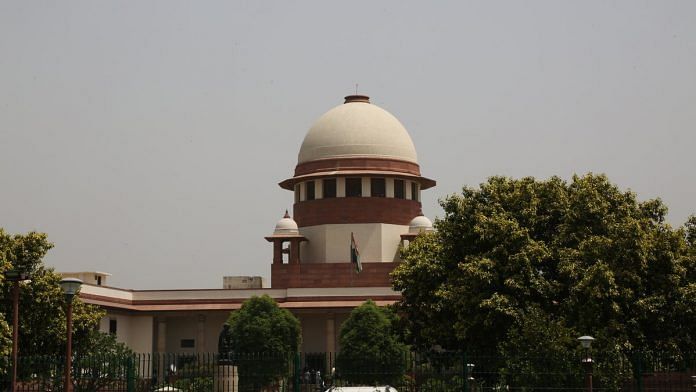New Delhi: A three-judge special bench of the Supreme Court headed by Justice N.V. Ramana dismissed a plea filed by the All India Hindu Mahasabha to declare unconstitutional the post-poll alliance between the Shiv Sena, the Congress and the Nationalist Congress Party (NCP) since it had “breached the people’s mandate”.
The petition, filed by Pramod Pandit Joshi of Mahasabha, also prayed to stop the oath-taking ceremony of Chief Minister Uddhav Thackeray.
Justices Ramana, Ashok Bhushan and Sanjiv Khanna, however, noted that there can be no order to prevent the oath-taking ceremony. The bench clearly stated that “it was not the court’s area and thus it did not have jurisdiction in the matter”.
Justice Ramana pointed out to the petitioner that if the plea is entertained, even political parties who fail to fulfill their manifesto promises could be dragged to court.
“There are so many directions in the manifesto. If a political party does not implement them, can we direct them to fulfill those promises by a court order?” Ramana asked. When the petitioner said it was a different issue, the bench disagreed.
Justice Ashok Bhushan also stated that there precedents of the court holding that post-poll alliances are valid.
An SC Constitution Bench in the Rameshwar Prasad case of 2006 had held that post-poll alliances did not violate the Constitution.
Also read: Amar Prem became Kati Patang — Uddhav Thackeray after Sena-BJP alliance collapsed in 2014
‘Shiv Sena betrayed mandate’
The petitioner, represented through advocate Barun Sinha, maintained that the BJP and Shiv Sena had a common minimum programme and were already slated to form government. But “breaching the people’s mandate”, the Shiv Sena walked out and joined hands with the Congress and the NCP.
The apex court, however, said this was the petitioner’s ideology and that pre-poll promises cannot be breached as they had no legal backing.
“Constitutional morality is different from political morality,” Justice Ramana said while dismissing the plea. “In a democracy, we cannot curtail political party’s right to form an alliance. It’s your ideology that political parties need to be abide by their promise but it’s not up to us.”
In 2014, the question of post-poll alliances had reached the Supreme Court.
A bench headed by then Chief Justice P. Sathasivam dismissed the PIL seeking a ban on post-poll alliances, saying, “Can we direct political parties not to join one group or other? This is not a matter to be decided by the court. How can we restrain parties from joining one group or other?”
A surge in post-poll alliances
There has been a surge in the number of post-poll alliances in the last few years.
In 2018, the Congress joined hands with the JD(S) to form government in Karnataka despite the BJP emerging as the single largest party.
But in states such as Goa, Manipur and Meghalaya, the Congress won the largest number of seats and also staked claim to form government but the BJP managed to secure a majority with post-poll alliances.
In 2017, when the Congress won 28 seats in the 60-member House in Manipur, the BJP had 21. The BJP joined hands with regional parties to claim support of the majority of MLAs, and Governor Najma Heptulla invited the party to form government, ignoring the Congress’s claims.
The Goa election, which was held along with that in Manipur, also threw up a hung assembly with the Congress winning 17 of the total 40 seats and the BJP 13. Here again, the BJP beat its rival in cobbling up a majority with post-poll allies.
In the Meghalaya polls held in February 2018, the Congress emerged as the largest party winning 21 of the 59 seats where elections were held. Its regional rival National People’s Party won 19 while the BJP got two seats. Both joined hands and won over other regional parties and independents to secure a majority.
Also read: ‘Secular’ Congress & NCP prevail over Sena for their alliance pact high on minority focus



